Jade Varden's Blog, page 20
January 12, 2015
Writing 101: Decades Can't Be Possessive (Or, Why 1960's Is Wrong, Wrong, Wrong)
In all but the rarest of circumstances, the rules of grammar don't change. They stay the same all the time, for every word. This is why its so very confusing when people make decades possessive. If you write 1970's or 60's anywhere, for any reason, you are wrong. And I'm here today to tell you how to be right.
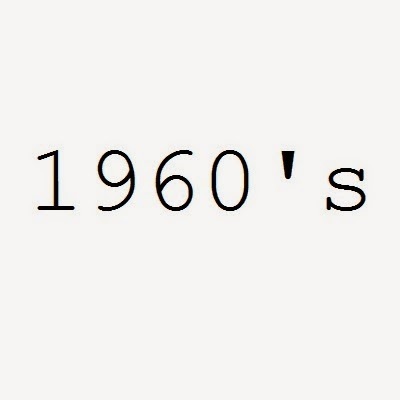
Apostrophe S
I cant seem to stress it enough: apostrophe s is there to show possession. This is Jade's blog. I'm using Blogspot's software.
Because the blog belongs to Jade, it's Jade's. The apostrophe s shows possession. And a decade can't possess something, can it?
Well, in rare cases it can, but for the purposes of this exercise the answer is no. It's no because every time I see someone talking about that decade, they are doing it wrong, wrong, wrong. When you are talking about a decade, it's 1960s. It's not 1960's.
It gets just a little more complicated. Sometimes, people don't say 1960s. Sometimes, they just say the main decade. They say '60s, but most people don't write it that way. Most people put the apostrophe in the wrong place. But you won't. Because you understand that the apostrophe at the beginning of the decade is there to do the other job that apostrophes do: it represents the missing numbers (or letters, in other cases of apostrophe usage). So when I say '60s, that's right.
And, once and for all, other uses are wrong. Wrong. Wrong.

Apostrophe S
I cant seem to stress it enough: apostrophe s is there to show possession. This is Jade's blog. I'm using Blogspot's software.
Because the blog belongs to Jade, it's Jade's. The apostrophe s shows possession. And a decade can't possess something, can it?
Well, in rare cases it can, but for the purposes of this exercise the answer is no. It's no because every time I see someone talking about that decade, they are doing it wrong, wrong, wrong. When you are talking about a decade, it's 1960s. It's not 1960's.
It gets just a little more complicated. Sometimes, people don't say 1960s. Sometimes, they just say the main decade. They say '60s, but most people don't write it that way. Most people put the apostrophe in the wrong place. But you won't. Because you understand that the apostrophe at the beginning of the decade is there to do the other job that apostrophes do: it represents the missing numbers (or letters, in other cases of apostrophe usage). So when I say '60s, that's right.
And, once and for all, other uses are wrong. Wrong. Wrong.
Published on January 12, 2015 05:30
January 10, 2015
Song of the Sea: Look Inside

I always knew my mother was unhappy. I just didn’t know why.
I don’t really know when I realized she wasn’t happy. When I look back at my childhood, all I can remember of her is long, black hair blowing in the wind as she stood on the deck of our house. She spent most of her time staring at the ocean with a sad expression on her face. The ocean was all around us, and it was the center of our world. It surrounded the tiny island where we lived (Matinicus, Maine. Population: 54), forcing us to contend with the water if we wanted to visit the mainland. It was the source of all our income, and it has always felt like my best friend. It just didn’t occur to me, back then, that my mother was looking at it differently.
Our house sat on a high, rocky bluff that overlooked the narrow strip of beach where our boathouse stood. Every day, my dad took the boat out on the water. He was a fisherman, and that’s actually how he and my mother met. She was in a terrible boating accident and very nearly drowned. My father came bouncing along the waves in his Boston Whaler and scooped her right out of a blow-up life raft.
It was such a romantic story, but the drama of almost drowning severely affected my mother. Since that day, she never went on a boat or in the water again. I often wondered if she was remembering her accident, those times I caught her staring at the gray waves of the North Atlantic Ocean.
I, too, was fascinated by the ocean, always had been. I think I could swim before I could walk. My dad once told me more than seventy percent of the Earth is the oceans. They connect everything to everything else. They link the continents, rivers, all the other oceans. And here’s the interesting part: most of the ocean floor is still undiscovered, unmapped. Unexplored. Scientists guess at all the different life forms which might exist in the ocean—but they don’t really know.
It is a liquid land filled with secrets and mysteries, and I wanted to discover them all. Looking back, maybe I was always interested in the water because I wanted to know why my mother found it so fascinating. Maybe I should have stayed on that small strip of beach.
But I didn’t. I went on a journey to find my mother…and somewhere along the way, I found myself instead.

Get it at Amazon, Smashwords or Kobo.
Published on January 10, 2015 05:30
January 8, 2015
Writing 101: Of Course, Comma
Commas are so confusing, I and just about every author who blogs about writing has tried to sort them out. I've written multiple posts about how to use commas, and when, and why not. But sometimes, you have to forget about all those rules. Some phrases are so special, they come with their own personal comma rules. Of course, you don't have to take my word for it...
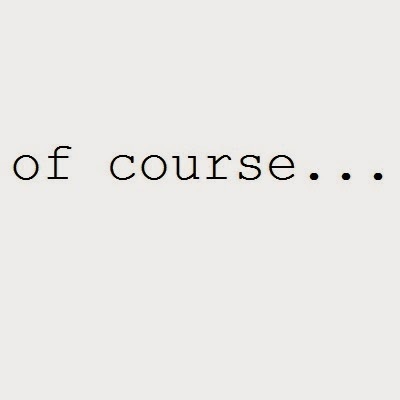
Of Course You Need a Comma There
I get hung up on little punctuation rules all the time. Of course, there's a lot of them to remember. But I found myself asking, several times, whether or not I was required to use a comma every time I use the phrase of course. It's confusing, because the phrase can be used in a multitude of ways.
Of course is a phrase of course of course, and no one can ignore the rules of a phrase of course, that is of course unless the phrase is the one we call of course. If you sing that to the "Mr. Ed" theme in your head, you'll get it. The point is, of course comes with a special set of comma circumstances. You need to know what they are.
Interrupting
I saw him on Monday, of course, but I don't know what he's been doing since.
In some sentences, of course is used as an interrupting phrase. It breaks up thoughts and slows down the pace. When the phrase is used this way, it's got to have commas.
Transitional
Of course, it is illegal to do that sort of thing in the middle of the street.
Sometimes, the phrase is used as a transitioning phrase. It carries the reader from one thought into the next. Of course is a smooth phrase when you use it this way, but it's only correct when you give it a comma. Transitional phrases must always have a comma.
Final Clause
We never got to eat the cake, of course.
Of course may appear at the end of a sentence as a last thought, a last word. When of course is tacked onto the end of a sentence like this, it always needs to follow a comma.
Of course I saw that great blog post!
In a lot of cases, a comma must accompany of course. When you're using the phrase differently than the examples above, however, no comma is required.

Of Course You Need a Comma There
I get hung up on little punctuation rules all the time. Of course, there's a lot of them to remember. But I found myself asking, several times, whether or not I was required to use a comma every time I use the phrase of course. It's confusing, because the phrase can be used in a multitude of ways.
Of course is a phrase of course of course, and no one can ignore the rules of a phrase of course, that is of course unless the phrase is the one we call of course. If you sing that to the "Mr. Ed" theme in your head, you'll get it. The point is, of course comes with a special set of comma circumstances. You need to know what they are.
Interrupting
I saw him on Monday, of course, but I don't know what he's been doing since.
In some sentences, of course is used as an interrupting phrase. It breaks up thoughts and slows down the pace. When the phrase is used this way, it's got to have commas.
Transitional
Of course, it is illegal to do that sort of thing in the middle of the street.
Sometimes, the phrase is used as a transitioning phrase. It carries the reader from one thought into the next. Of course is a smooth phrase when you use it this way, but it's only correct when you give it a comma. Transitional phrases must always have a comma.
Final Clause
We never got to eat the cake, of course.
Of course may appear at the end of a sentence as a last thought, a last word. When of course is tacked onto the end of a sentence like this, it always needs to follow a comma.
Of course I saw that great blog post!
In a lot of cases, a comma must accompany of course. When you're using the phrase differently than the examples above, however, no comma is required.
Published on January 08, 2015 05:30
January 7, 2015
Writing 101: Speed
After you publish a book, you've got to start immediately thinking about publishing your next book. You've got to keep publishing, even though you have to worry about promoting and editing and making trailers and maintaining you day job, too. When it comes to being an indie, how important is speed?
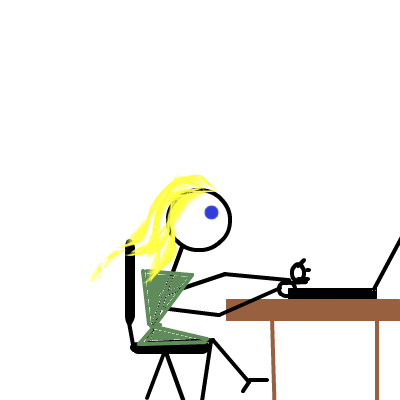
How Fast Can You Publish?
Some of the most successful self-published authors don't just put books out there. They put a lot of books out there very quickly. They make money by constantly offering something new to their fan bases. They make money with speed. What if you can't keep up?
How fast do you have to get your books out before you fade away and all the readers forget you exist? Pretty fast, really. Indie authors helped to create events like NaNoWriMo, a speed-writing contest where everyone scrambles to write a novel in a month as if this somehow has some virtue to it. Speed is everything in the self-publishing game, and that's unfortunate because speed and quality don't often go hand-in-hand. The Mona Lisa literally took decades to paint, people.
But I digress. The point is, speed is pretty important in self-publishing. If you aren't publishing frequently and regularly, some readers are going to forget about you. They may not wait for you to release that sequel or finish that series before they move on to another author and forget your name.
Speed matters, yes. You'll sell a lot more books and probably have a lot more readers if you start churning out novels all the time. But quality matters, too. The vast majority, and I mean the vast majority, of all authors don't make a lot of money. Most of them have other jobs. But they write because they love it, like you, and because they want to tell stories.
At the end of the day, you are always a storyteller. It doesn't matter how fast you can publish. Your job is tell the story you've got to tell in the best possible way. Your job as an author is to deliver quality over speed. Keep doing that, and you'll win the race eventually. The tortoise was slow and steady, and he beat that flashy hare at the end. If you release fewer stories that are higher in quality, eventually you'll win over that big fan base ad build up that reputation that will help you sell more stories.
When it comes to speed over storytelling, always choose storytelling.

How Fast Can You Publish?
Some of the most successful self-published authors don't just put books out there. They put a lot of books out there very quickly. They make money by constantly offering something new to their fan bases. They make money with speed. What if you can't keep up?
How fast do you have to get your books out before you fade away and all the readers forget you exist? Pretty fast, really. Indie authors helped to create events like NaNoWriMo, a speed-writing contest where everyone scrambles to write a novel in a month as if this somehow has some virtue to it. Speed is everything in the self-publishing game, and that's unfortunate because speed and quality don't often go hand-in-hand. The Mona Lisa literally took decades to paint, people.
But I digress. The point is, speed is pretty important in self-publishing. If you aren't publishing frequently and regularly, some readers are going to forget about you. They may not wait for you to release that sequel or finish that series before they move on to another author and forget your name.
Speed matters, yes. You'll sell a lot more books and probably have a lot more readers if you start churning out novels all the time. But quality matters, too. The vast majority, and I mean the vast majority, of all authors don't make a lot of money. Most of them have other jobs. But they write because they love it, like you, and because they want to tell stories.
At the end of the day, you are always a storyteller. It doesn't matter how fast you can publish. Your job is tell the story you've got to tell in the best possible way. Your job as an author is to deliver quality over speed. Keep doing that, and you'll win the race eventually. The tortoise was slow and steady, and he beat that flashy hare at the end. If you release fewer stories that are higher in quality, eventually you'll win over that big fan base ad build up that reputation that will help you sell more stories.
When it comes to speed over storytelling, always choose storytelling.
Published on January 07, 2015 05:30
January 6, 2015
Writing 101: Keywords and Social Media
If you're not using keywords with your social media, you're missing out on some of your audience. Start expanding your Twitter reach by choosing the right words.
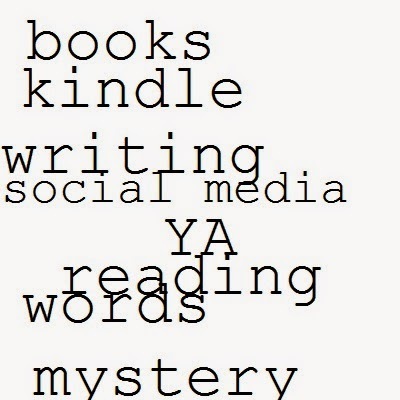
The Right Words
Use keywords to find your target audience on Twitter. Social media is a great tool for targeting the right readers, but only if you know how to use it. You can't wait for your readers to come to you, because how do they know you exist? You've got to seek them out. And like any writer, you should use the most powerful tool at your disposal: words.
What genre do you write in? There's your first keyword. The great thing about Twitter is that you can use it to search for words. So go type your genre in that bar, click on People, and start following them. If you follow people who are interested in your genre, they might follow you back. Maybe they'll read your tweets and click on your links. And this is how you get new readers.
Don't stop. What other words are associated with your book? If you write YA, or example, you might also try keywords like "teen" or "high school." What about other books in your genre? Sticking with the YA theme, target people who are into popular books in that genre. "Twilight," "Divergent" and "The Hunger Games" will help you find lots and lots of readers. People who like books in your genre are exactly what you want to find. This is how you do it.
Keep going. Think of various words associated with your book. "Love," maybe, or "romance." Maybe you've written something in the fantasy genre. "Vampires," "werewolves" or "unicorns" might appear in your book. Use a keyword search to find people who are into those things.
The right words allow you to connect with the right readers. Take the time to look for them, and you'll find them. You can't wait for the readers to come to you, because they may never find you. But if you seek them out, you give them the opportunity to see what you've got to offer.

The Right Words
Use keywords to find your target audience on Twitter. Social media is a great tool for targeting the right readers, but only if you know how to use it. You can't wait for your readers to come to you, because how do they know you exist? You've got to seek them out. And like any writer, you should use the most powerful tool at your disposal: words.
What genre do you write in? There's your first keyword. The great thing about Twitter is that you can use it to search for words. So go type your genre in that bar, click on People, and start following them. If you follow people who are interested in your genre, they might follow you back. Maybe they'll read your tweets and click on your links. And this is how you get new readers.
Don't stop. What other words are associated with your book? If you write YA, or example, you might also try keywords like "teen" or "high school." What about other books in your genre? Sticking with the YA theme, target people who are into popular books in that genre. "Twilight," "Divergent" and "The Hunger Games" will help you find lots and lots of readers. People who like books in your genre are exactly what you want to find. This is how you do it.
Keep going. Think of various words associated with your book. "Love," maybe, or "romance." Maybe you've written something in the fantasy genre. "Vampires," "werewolves" or "unicorns" might appear in your book. Use a keyword search to find people who are into those things.
The right words allow you to connect with the right readers. Take the time to look for them, and you'll find them. You can't wait for the readers to come to you, because they may never find you. But if you seek them out, you give them the opportunity to see what you've got to offer.
Published on January 06, 2015 05:30
January 5, 2015
Writing 101: Who are You Writing To?
When you're writing, how often do you think about the reader? If you don't know who you're writing to, you're not writing at your best.
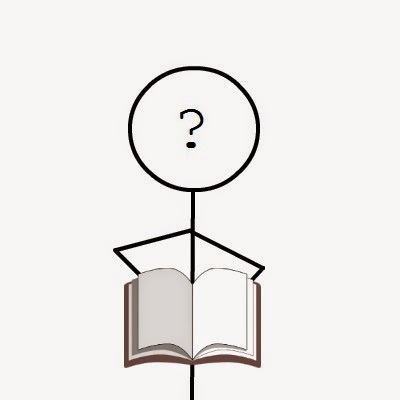
Playing to the Audience
Have you ever been on a stage? If you perform for a crowd, you'll be told to play to the very back of the room. This way, the entire audience will feel included on your performance. Writing is sort of like that, too.
A writer has to be aware of their reader at all times. Think of it like this. If you're writing a greeting card to your 60-year-old grandmother, you're going to use more formal language with less slang (one hopes). If you write a birthday card to your best friend, you might tease them or drop a joke or use some phrase the two of you like. The point is, you probably wouldn't give the same card to both people. And when you write a book, you have to write to your audience there, too.
Age group is the first thing you want to think about. You know if you're writing to adults, teens or children. But which ages, within these big groups, are most likely to be drawn to your story? Think about them. Follow people in that group on Twitter. Write to them. Use references and words that make sense to them.
Don't be afraid that you'll be alienating one audience for another. Write truthfully to your specific audience, and you'll be surprised by how big that audience becomes.

Playing to the Audience
Have you ever been on a stage? If you perform for a crowd, you'll be told to play to the very back of the room. This way, the entire audience will feel included on your performance. Writing is sort of like that, too.
A writer has to be aware of their reader at all times. Think of it like this. If you're writing a greeting card to your 60-year-old grandmother, you're going to use more formal language with less slang (one hopes). If you write a birthday card to your best friend, you might tease them or drop a joke or use some phrase the two of you like. The point is, you probably wouldn't give the same card to both people. And when you write a book, you have to write to your audience there, too.
Age group is the first thing you want to think about. You know if you're writing to adults, teens or children. But which ages, within these big groups, are most likely to be drawn to your story? Think about them. Follow people in that group on Twitter. Write to them. Use references and words that make sense to them.
Don't be afraid that you'll be alienating one audience for another. Write truthfully to your specific audience, and you'll be surprised by how big that audience becomes.
Published on January 05, 2015 05:30
January 1, 2015
How I Spent My Year
It's January 1, and we all know what that means: I've got to write a New Year's-themed blog post. The year flew by. But weirdly, so many things happened that it also feels like it was much more than just one year. So this year, I'm writing my annual blog post about how I spent the year.

Two Thousand and Fourteen...Million Words
The year 2014 started for me much as 2013 did. I'd just published a new book, Hope's Rebellion, and I started blogging all the writing tips I'd learned through the year. Then came July, and a ton of changes.
As regular readers know, I work as a freelancer under a different pen name by day. As a freelancer, I am required to seek out new jobs all the time. In July, I got one. I really enjoy it and it's very steady, a rarity in the writing game, but it's been incredibly demanding on my time.
The wheels started to really fall off in October. I stopped sleeping in 2014 almost entirely. I'm getting 3 to 4 hours a night during the week, 5 to 6 on the weekends (when I'm lucky). You may have noticed that the blog hasn't been so consistent lately. I'm writing all the time, but working on books only infrequently. This does not lend itself to a lot of new Writing 101 tips.

Still, I did manage to publish a new book recently: Song of the Sea. It's the first installment in a new trilogy I'm writing, and a huge departure for me as an author. It's high fantasy, and subject matter I've never tackled before.
It wasn't the first project I started in 2014. I began the year determined to write another book, and spit out 6 quick chapters before I hit the wall. I realized that something just wasn't right, and hadn't been right for a few chapters. I tried re-reading. I tried to force it. I tried all the tricks that I always tell you to try, but it didn't work. So in the spring, I moved on and began writing "Song of the Sea" instead. But before that, I created a trailer for the still-incomplete project I began at the beginning of the year. This is the first unveiling of that trailer, and the only time I'm likely to mention the book for the next several months:
I plan on releasing "What Happened to Mary Celeste" sometime in 2015. After I finished "Song of the Sea," the problem that had been stumping me suddenly resolved itself. I was dusting one day when it just came to me all at once, and I suddenly knew exactly how to fix the book. So I'm back on track, and I'm on Chapter 8. Keep reading the blog through 2015 to find out when it will be released.
My streak of breaking resolutions is still alive, a fact that will become evident if you re-read my New Year post from last year. But once again, I'll make plans. Maybe this year, they'll actually work out.
In 2015, I hope to release "Mary Celeste" and the next installment in the Saltwater Secrets trilogy. But first, I'm going to get some sleep!

Two Thousand and Fourteen...Million Words
The year 2014 started for me much as 2013 did. I'd just published a new book, Hope's Rebellion, and I started blogging all the writing tips I'd learned through the year. Then came July, and a ton of changes.
As regular readers know, I work as a freelancer under a different pen name by day. As a freelancer, I am required to seek out new jobs all the time. In July, I got one. I really enjoy it and it's very steady, a rarity in the writing game, but it's been incredibly demanding on my time.
The wheels started to really fall off in October. I stopped sleeping in 2014 almost entirely. I'm getting 3 to 4 hours a night during the week, 5 to 6 on the weekends (when I'm lucky). You may have noticed that the blog hasn't been so consistent lately. I'm writing all the time, but working on books only infrequently. This does not lend itself to a lot of new Writing 101 tips.

Still, I did manage to publish a new book recently: Song of the Sea. It's the first installment in a new trilogy I'm writing, and a huge departure for me as an author. It's high fantasy, and subject matter I've never tackled before.
It wasn't the first project I started in 2014. I began the year determined to write another book, and spit out 6 quick chapters before I hit the wall. I realized that something just wasn't right, and hadn't been right for a few chapters. I tried re-reading. I tried to force it. I tried all the tricks that I always tell you to try, but it didn't work. So in the spring, I moved on and began writing "Song of the Sea" instead. But before that, I created a trailer for the still-incomplete project I began at the beginning of the year. This is the first unveiling of that trailer, and the only time I'm likely to mention the book for the next several months:
I plan on releasing "What Happened to Mary Celeste" sometime in 2015. After I finished "Song of the Sea," the problem that had been stumping me suddenly resolved itself. I was dusting one day when it just came to me all at once, and I suddenly knew exactly how to fix the book. So I'm back on track, and I'm on Chapter 8. Keep reading the blog through 2015 to find out when it will be released.
My streak of breaking resolutions is still alive, a fact that will become evident if you re-read my New Year post from last year. But once again, I'll make plans. Maybe this year, they'll actually work out.
In 2015, I hope to release "Mary Celeste" and the next installment in the Saltwater Secrets trilogy. But first, I'm going to get some sleep!
Published on January 01, 2015 05:30
December 31, 2014
Writing and Drinking
There's an entire school of thought that certain substance abuse doesn't hinder your mind, it frees it. If you get drunk enough, you'll be open to all sorts of new ideas and imaginings. You may even finally get over that writer's block and figure out the ending of your book.

This a school of thought that was clearly developed by someone who was actually drunk at the time. Writing and drinking do not mix, and I don't care how many famous authors have said that they do.
Alcohol
It's pretty much common knowledge that Mark Twain liked to drink. Hemingway famously drank all the time. Edgar Allen Poe and F. Scott Fitzgerald both liked to his the sauce, and let's not even talk about Hunter S. Thompson. There are so many authors who were known for drinking just in America, NPR did a whole show about it. And now they're all dead.
Most of the authors who drink copiously, just like any other human beings with the same habit, die before their time. And by the way, lots of them are known for quotes about extensive editing. Of course they had to edit extensively. They were writing while drinking, which is an all-around bad idea.
Alcohol impairs your senses and clouds your brain. It makes it difficult for you to focus. Your attention is diverted easily by alcohol. It also damages your liver, particularly if you drink regularly and drink a lot.
Writing is already hard enough. There is absolutely no reason to mix alcohol with your plot lines, unless you're keeping all the liquid on the page and not in your mouth.
That said, there's nothing wrong with taking a night off from writing if you do need to blow off a little steam. So pop some champagne tonight, put the laptop away, and ring in the New Year. You can get back to serious story-building tomorrow.

This a school of thought that was clearly developed by someone who was actually drunk at the time. Writing and drinking do not mix, and I don't care how many famous authors have said that they do.
Alcohol
It's pretty much common knowledge that Mark Twain liked to drink. Hemingway famously drank all the time. Edgar Allen Poe and F. Scott Fitzgerald both liked to his the sauce, and let's not even talk about Hunter S. Thompson. There are so many authors who were known for drinking just in America, NPR did a whole show about it. And now they're all dead.
Most of the authors who drink copiously, just like any other human beings with the same habit, die before their time. And by the way, lots of them are known for quotes about extensive editing. Of course they had to edit extensively. They were writing while drinking, which is an all-around bad idea.
Alcohol impairs your senses and clouds your brain. It makes it difficult for you to focus. Your attention is diverted easily by alcohol. It also damages your liver, particularly if you drink regularly and drink a lot.
Writing is already hard enough. There is absolutely no reason to mix alcohol with your plot lines, unless you're keeping all the liquid on the page and not in your mouth.
That said, there's nothing wrong with taking a night off from writing if you do need to blow off a little steam. So pop some champagne tonight, put the laptop away, and ring in the New Year. You can get back to serious story-building tomorrow.
Published on December 31, 2014 05:30
December 30, 2014
Writing 101: You Need to Change Your Twitter Photos
If you're trying to be an indie author, the first thing you need to do is change your Twitter photo. Do not take a picture of yourself with a webcam. Do not scan your High School yearbook photo. Take a nice head shot. Otherwise, you could wind up looking at me with googly eyes while I'm trying to enjoy social media.

Michele Bachmann Eyes
Always double- and triple-check your photos before you upload them to Twitter. Have a picture of your face taken by someone who likes you. Look at yourself in the mirror and practice your author pose. If you don't do this, you could end up with Michele Bachmann face. Don't have profile that looks like this picture of Jon Stewart. He's making fun of Michele Bachmann here, but I see people on Twitter who look like this all the time.

I also see a ton of profiles that look like this. If you want to sell books, don't run around Twitter with an egg on your face. No one will take you seriously.
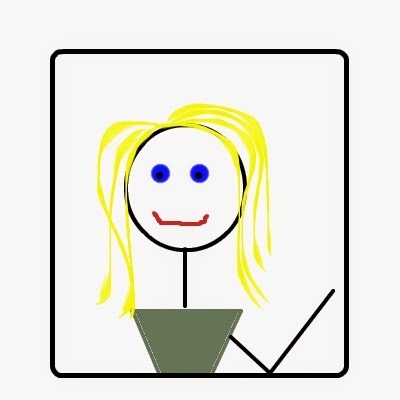
Choose a flattering, benign image of your face. Don't be super-sexy or scary-looking. Don't be way too serious, either. Try a small smile, and just use a simple image. If yours don't look like this, you need to change your Twitter photos.

Michele Bachmann Eyes
Always double- and triple-check your photos before you upload them to Twitter. Have a picture of your face taken by someone who likes you. Look at yourself in the mirror and practice your author pose. If you don't do this, you could end up with Michele Bachmann face. Don't have profile that looks like this picture of Jon Stewart. He's making fun of Michele Bachmann here, but I see people on Twitter who look like this all the time.

I also see a ton of profiles that look like this. If you want to sell books, don't run around Twitter with an egg on your face. No one will take you seriously.

Choose a flattering, benign image of your face. Don't be super-sexy or scary-looking. Don't be way too serious, either. Try a small smile, and just use a simple image. If yours don't look like this, you need to change your Twitter photos.
Published on December 30, 2014 05:30
December 29, 2014
Writing 101: Spell Check is Ruining My Life
I always thought that automatic spell check was one of the greatest inventions of modern man. I thought that until about a week ago, when I realized all at once that spell check has actually ruined me as a writer. This is a cautionary tale to warn you about how spell check may also be ruining you. Please, proceed with care.
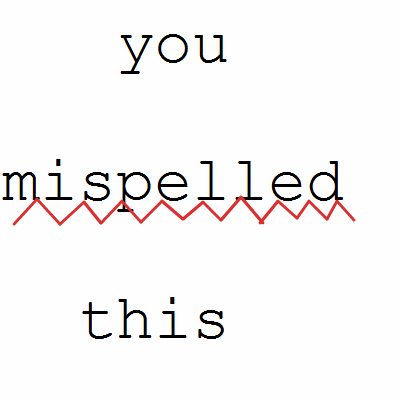
How Do I Hate Thee
It happened just the other day. I had cut-and-pasted something from Word into Google Drive, or vice versa. It doesn't really matter. The point is, I was proofreading what I'd just written. I didn't realize that spell check hadn't yet kicked in.
That is, I didn't realize it until I was two paragraphs down the page. Suddenly, the screen lit up with red squiggles everywhere. They were all over those first two paragraphs. I went back to look again, and saw that what I'd just proofread was riddled with errors. I just couldn't see them the first time around, because spell check didn't show them to me. I've become so dependent on those red squiggled I'm no longer seeing my own errors.
Is spell check ruining your life, too? Test yourself. Type a page out in Notepad, which doesn't have spell check, and then paste it into Word. See what happens.

How Do I Hate Thee
It happened just the other day. I had cut-and-pasted something from Word into Google Drive, or vice versa. It doesn't really matter. The point is, I was proofreading what I'd just written. I didn't realize that spell check hadn't yet kicked in.
That is, I didn't realize it until I was two paragraphs down the page. Suddenly, the screen lit up with red squiggles everywhere. They were all over those first two paragraphs. I went back to look again, and saw that what I'd just proofread was riddled with errors. I just couldn't see them the first time around, because spell check didn't show them to me. I've become so dependent on those red squiggled I'm no longer seeing my own errors.
Is spell check ruining your life, too? Test yourself. Type a page out in Notepad, which doesn't have spell check, and then paste it into Word. See what happens.
Published on December 29, 2014 05:30



